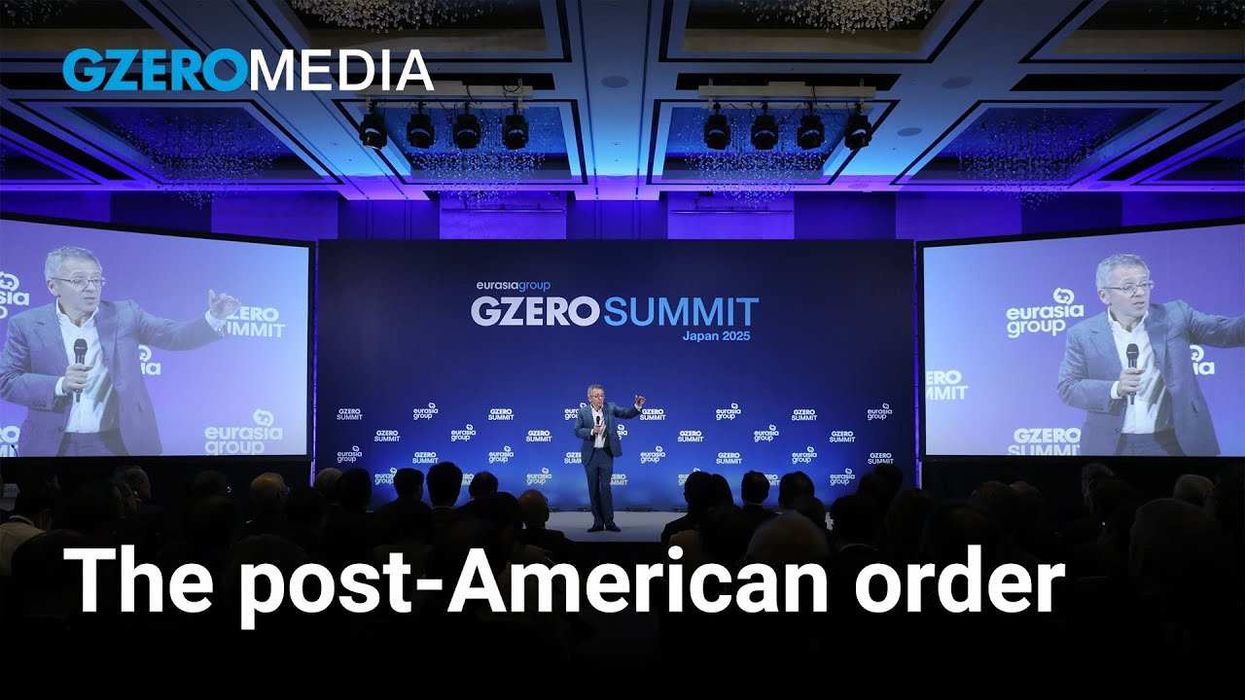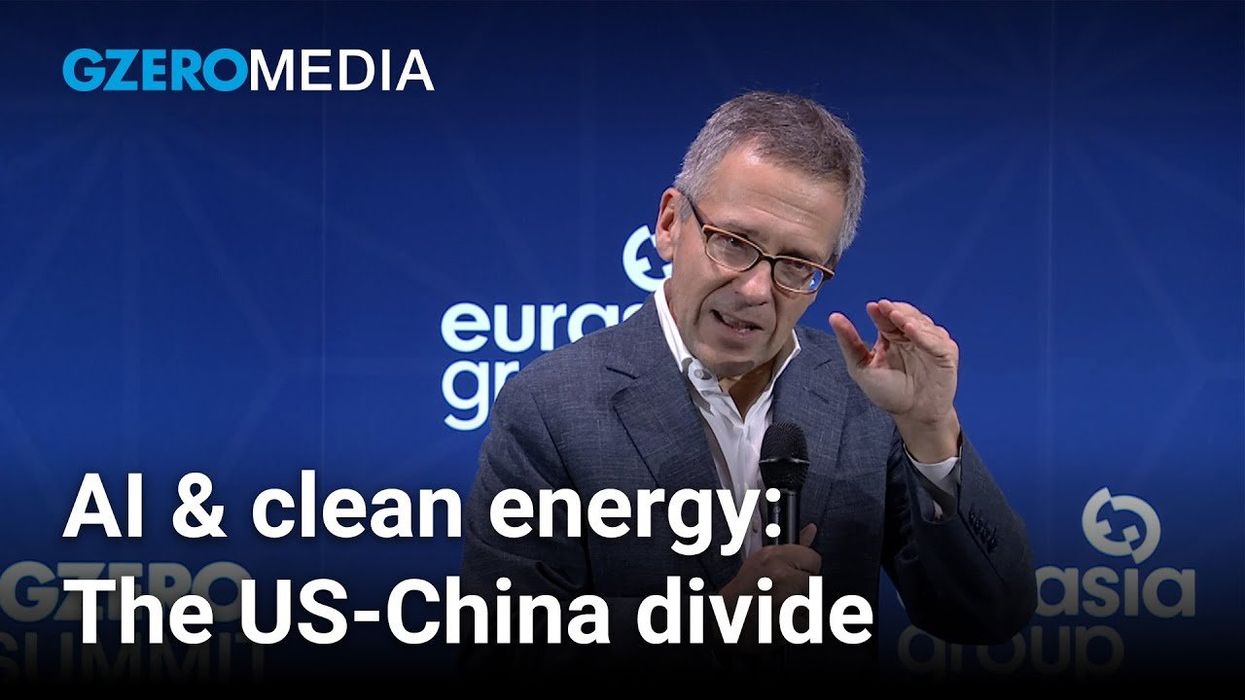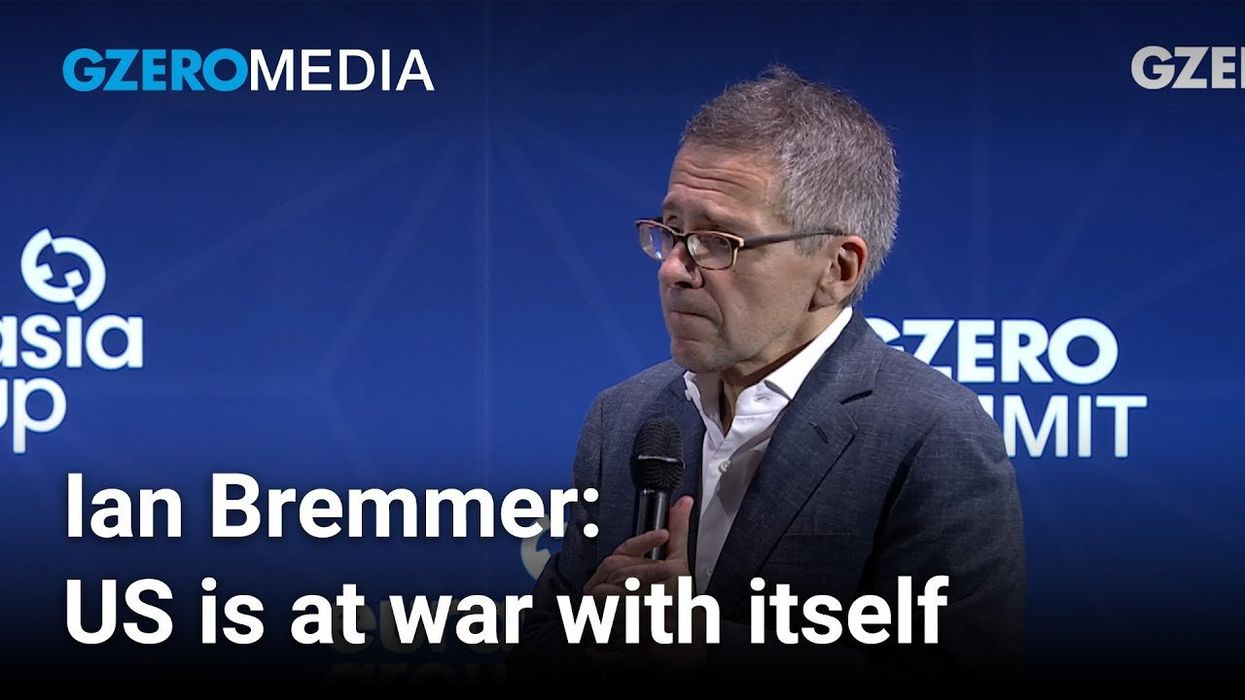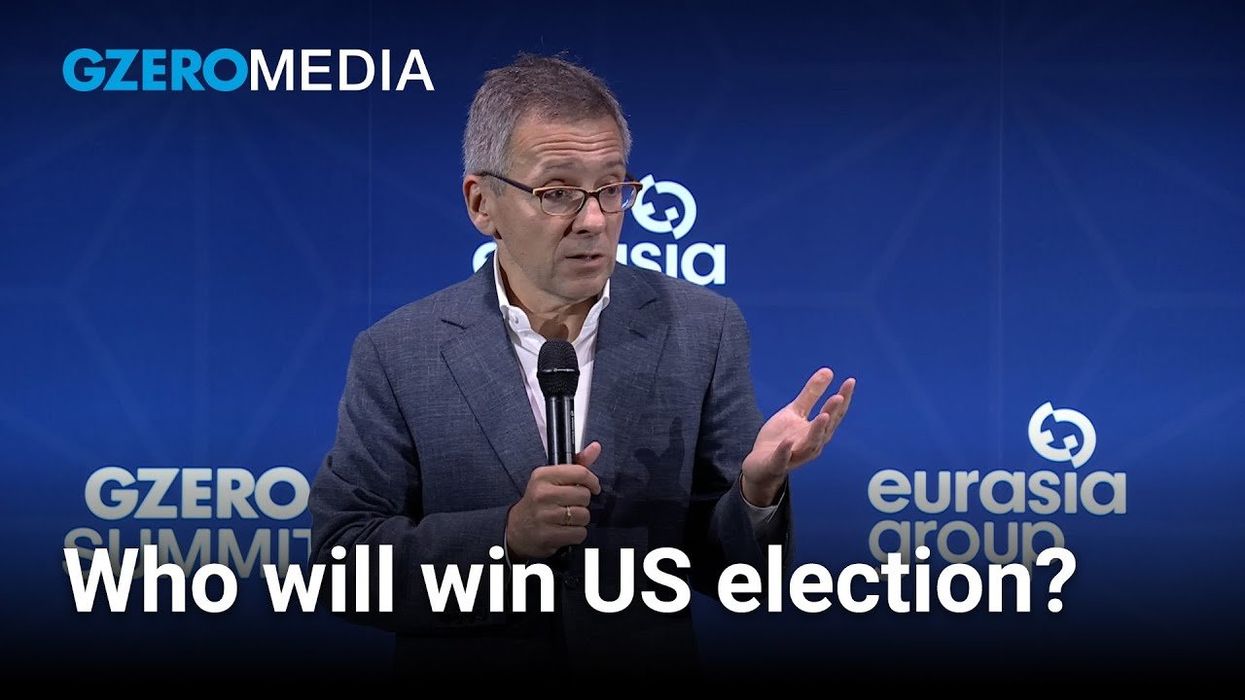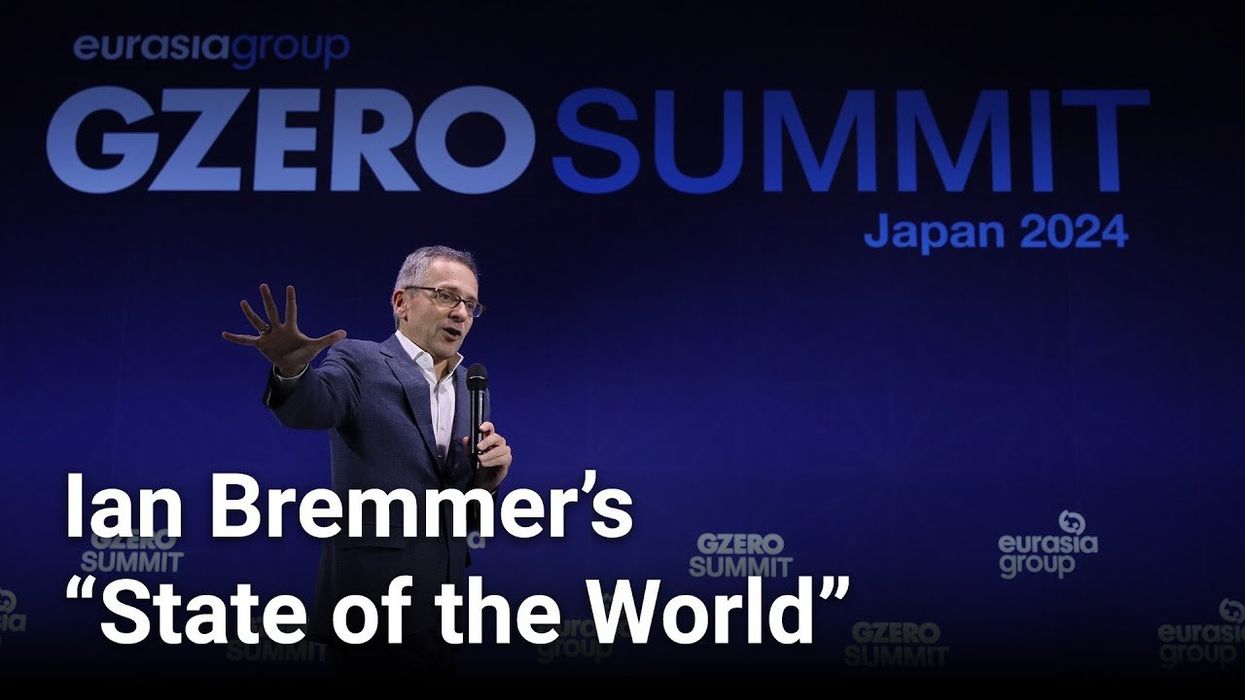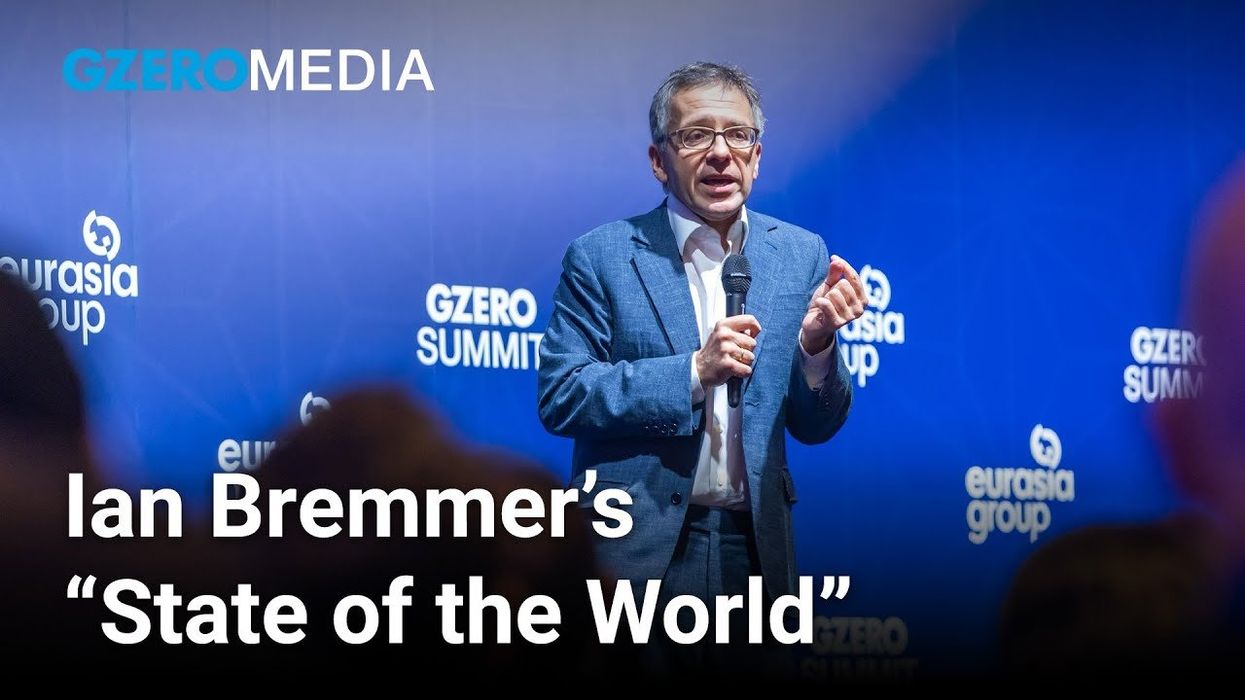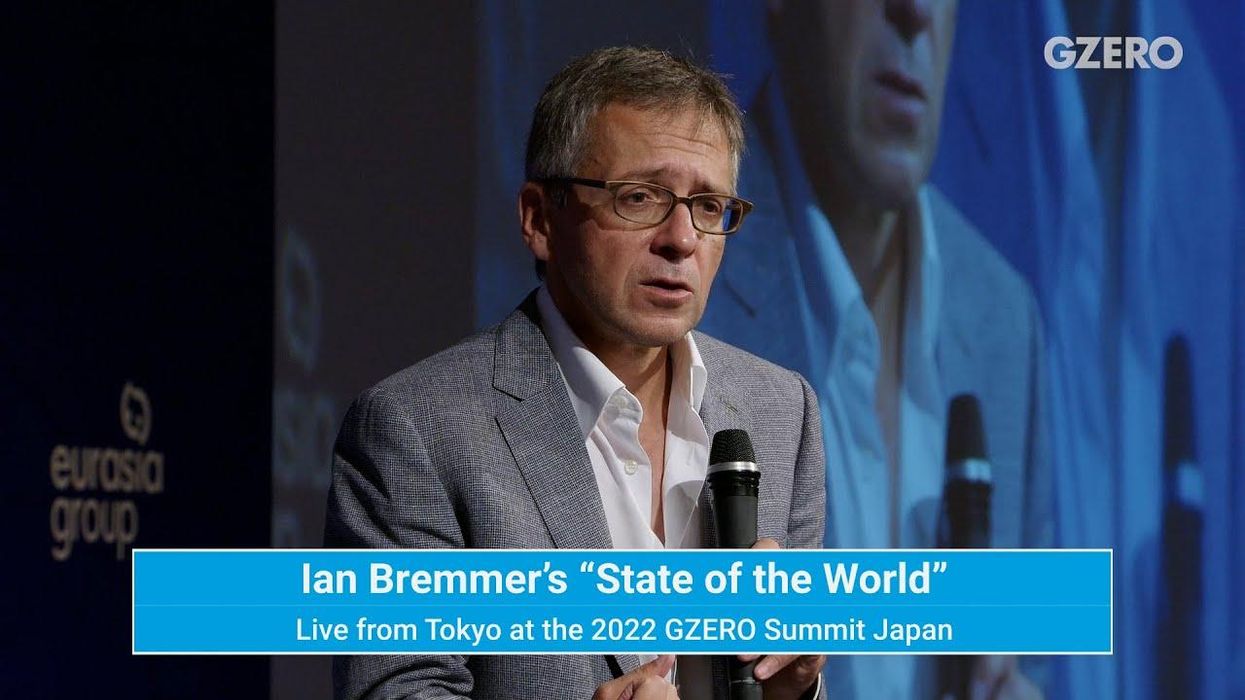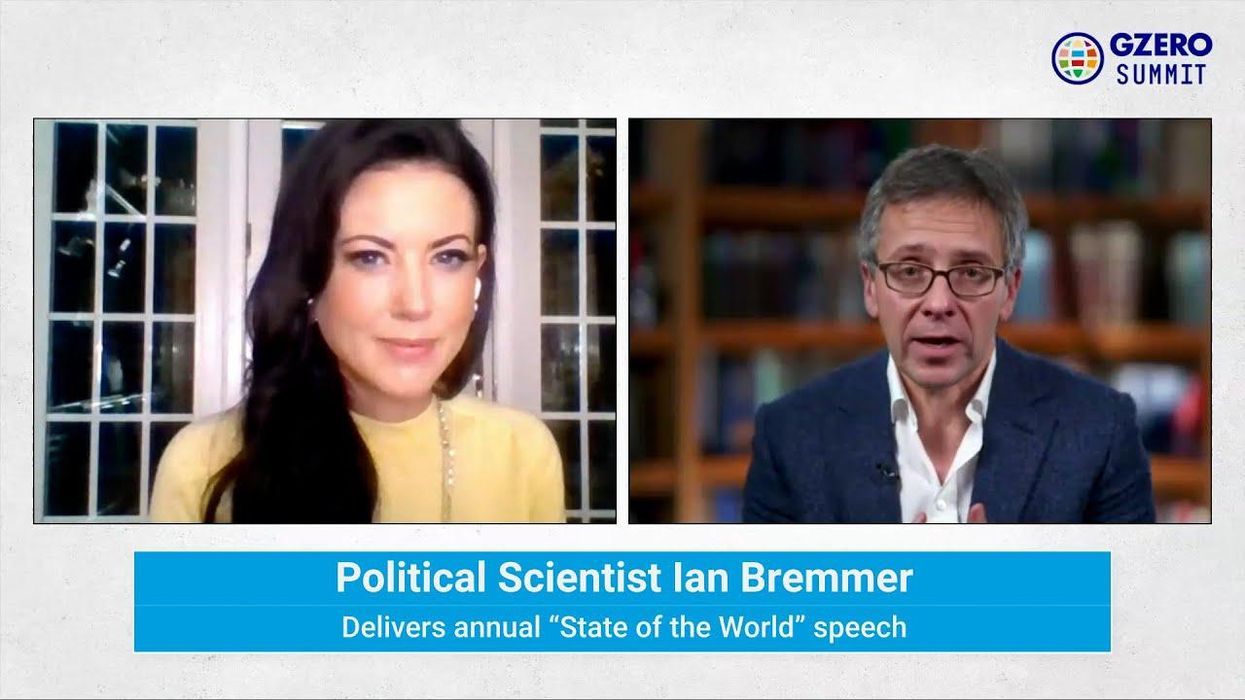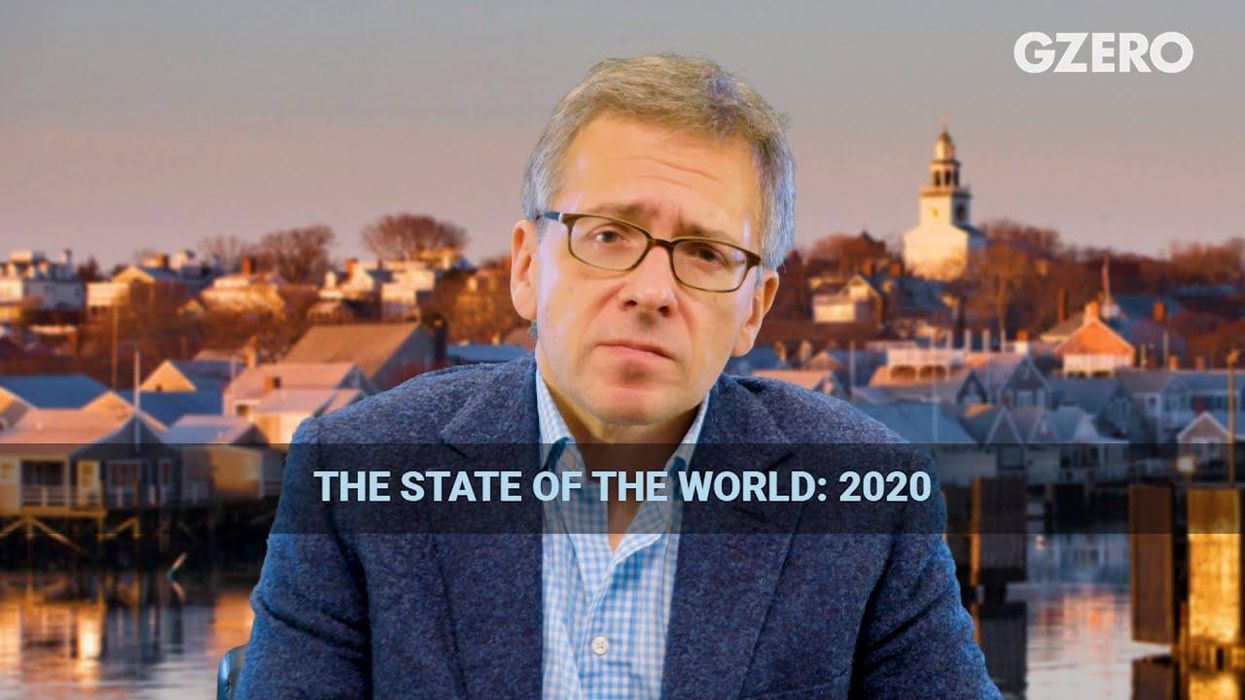VIDEOSGZERO World with Ian BremmerQuick TakePUPPET REGIMEIan ExplainsGZERO ReportsAsk IanGlobal Stage
Site Navigation
Search
Human content,
AI powered search.
Latest Stories
Sign up for GZERO Daily.
Get our latest updates and insights delivered to your inbox.
Global Stage: Live from Davos
WATCH
State of the World
In Ian Bremmer's annual "State of the World" speech every year, he presents his vision for the year ahead and outlines the major themes and forces shaping the geopolitical landscape.
Presented by
Ian Bremmer, president of Eurasia Group, our parent company, has opened this year’s GZERO Summit with a provocative speech on the near future of international politics. Here are the highlights.
Are the United States and China now locked in a new form of Cold War? Their governments behave as if they are.
But Bremmer isn’t buying it. He’s not predicting that Washington and Beijing will become more cooperative with one another, but that both will be too preoccupied with historic challenges at home in coming years to wage a full-time international struggle.
In Washington, the main worry will be for America’s broken political system. US politics is becoming even more tribalized as TV and online media target politically like-minded consumers with hyperpartisan news coverage. Widening wealth inequality fuels the fire by separating white and non-white, urban and rural, and the more educated from the less educated. Deepening public mistrust of political institutions will fuel future fights over the legitimacy of US elections.
Beijing’s burden centers on how to extend decades of economic gains while moving away from a growth model that no longer works, as higher wages in China and more automation in factories elsewhere cut deeply into China’s manufacturing advantages. China is still a middle-income country. To reach the prosperity level of wealthy nations, it needs 6-7 percent growth for another 20 years.
But China must spend less in coming years to keep giant, deeply indebted companies afloat and more to care for the largest population of elderly people in history. And its leaders must accomplish this at a time when China’s people expect ever-rising levels of prosperity from their government.
The domestic distraction of US and Chinese leaders will create new opportunities for European, Japanese, Canadian, Indian and other political and business leaders to contribute toward international problem-solving. But other governments aren’t the only new players stepping into this power vacuum.
Technology companies are fast becoming important geopolitical actors. We’re entering a world in which economic winners and losers, election outcomes, and national security will depend on choices made by both governments and by the world’s big tech firms.
Bremmer calls this a “techno-polar moment.”
The idea is simple but transformative: Just as governments make the laws that determine what can happen in the physical world, tech companies have final authority in a digital world that’s becoming both more expansive and more immersive.
The biggest tech companies will establish sovereignty by defining the digital space and its boundaries, the algorithms that determine what happens within that space, and the “terms and conditions” that decide who gets to operate in this world.
For skeptics, Bremmer poses this question: Who will do more to influence the outcome of next year’s US midterm congressional elections: The president of the United States or the CEO of Meta? According to Bremmer, since the vote will be influenced by both real-world rules changes and the online flow of information, the answer isn’t obvious.
How will tech companies try to expand their power? Some will behave as “globalists” by trying to reach consumers and influence politics everywhere.
Others will act as “national champions” by aligning with individual governments and their goals.
Still, others will behave as “techno-utopians,” companies that expect historical forces and tech innovations to help them replace governments in important ways.
The relative success of these models over the next decade will decide how government and tech companies share power over the longer-term and whether democracy or autocracy will have the upper hand.
What’s to be done? “Think adaptation, not surrender,” says Bremmer. Steps can be taken to limit the sometimes negative influence of tech companies in the political lives of democracies. But just as climate change can be limited but not avoided, so we must understand and adapt to a world in which governments and tech companies compete for influence over our lives.
Keep reading...Show less
More from State of the World
Ian Bremmer: “We’re Living in a Post-American Order”
October 21, 2025
Ian Bremmer's State of the World 2025 speech
October 21, 2025
Ian Bremmer: AI and clean energy are reshaping the US-China rivalry
October 31, 2024
US election: America is at war with itself
October 31, 2024
Ian Bremmer on the US election & crisis of democracy
October 23, 2024
Ian Bremmer's State of the World 2024
October 23, 2024
State of the World with Ian Bremmer: December 2023
December 05, 2023
State of the World: On the verge of fragmentation?
September 27, 2022
Who's winning the global battle for tech primacy?
December 07, 2021
Ian Bremmer on the State of the World: COVID-19, the great accelerator
December 08, 2020
GZERO Series
GZERO Daily: our free newsletter about global politics
Keep up with what’s going on around the world - and why it matters.

